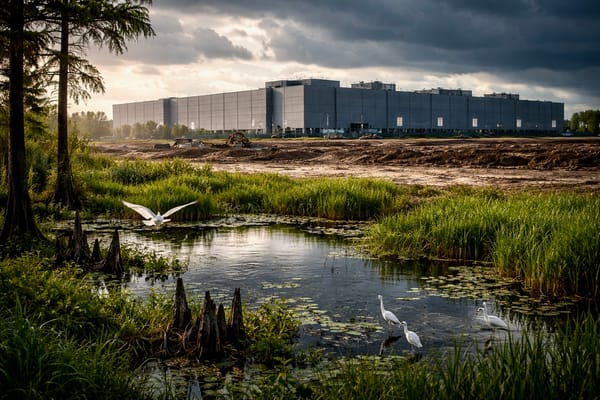Food Security Is National Security: Alabama’s Call to Lead in Agribusiness
Guest Opinion by Dr. Nicole Jones Wadsworth

Guest Opinion by Nicole Jones Wadsworth, PhD, MBA, MS; Site Selector, Economic Developer, and Candidate for Lieutenant Governor of Alabama
When we talk about national security, our minds often go to military strength, energy independence, or technology. However, another cornerstone exists that is just as vital to America’s survival and Alabama’s future: food security. Simply put, food security is national security. Without reliable access to affordable, nutritious food, our health, our economy, and our sovereignty are at risk.
Alabama is uniquely positioned to lead. With fertile land, abundant water, and generations of agricultural expertise, our state has long been a supplier of food and fiber to the nation. According to the Alabama Agribusiness Council, agriculture, forestry, and agribusiness contribute more than $77 billion annually to Alabama’s economy and employ approximately ten percent (10%) of Alabama’s workforce. The value of agriculture is the foundation of community stability and the ultimate insurance policy against global uncertainty.
As an economic developer and site selector, I have seen firsthand how agribusiness drives investment decisions. Companies want to locate in regions with reliable infrastructure, skilled labor, and access to raw materials. Alabama checks those boxes. From row crops and poultry to timber and catfish, our state produces what the world needs. With the right policies, we can build on this competitive advantage and ensure food independence for our people.
The challenges, however, are real. Rising input costs, global supply chain disruptions, and inflation make it harder for farmers to stay profitable and for families to afford groceries. At the same time, foreign ownership of farmland and dependence on imports threaten the resilience of our food system. These policy concerns directly impact the dinner tables of every Alabamian.
Food security also affects health outcomes. Alabama faces some of the highest rates of chronic illnesses in the nation, many linked to diet. Strengthening local food systems, expanding farm-to-school and farm-to-table programs, and supporting access to fresh produce in underserved areas area agricultural policies as well as public health solutions that can lower long-term healthcare costs and strengthen our workforce.
As Lieutenant Governor, I will champion policies that:
§ Protect Alabama farmland from foreign adversarial ownership.
§ Expand agricultural workforce training and educational programs to prepare the next generation of farmers, agribusiness leaders, and innovators.
§ Invest in infrastructure—roads, ports, rail, and broadband—that connects rural producers with global markets.
§ Promote agribusiness innovation in precision agriculture, agricultural genomics, logistics, and food processing to make farms more efficient and sustainable.
§ Strengthen local food systems that increase access to affordable, healthy food for Alabama families.
Agriculture is part of our heritage, and investing in the field is strategy. Agriculture is the foundation of our economy, the safeguard of our health, and the assurance of our freedom. When Alabama farmers succeed, every Alabamian succeeds. And when America can feed itself, our nation is stronger, safer, and more secure.
The future of food security begins here at home. Together, we can ensure that Alabama not only feeds our state but helps secure the strength of our nation for generations to come.
Dr. Nicole Jones Wadsworth
President, Jones Wadsworth
Candidate for Lieutenant Governor of Alabama, NicoleForAlabama.com
Opinions do not reflect the views and opinions of ALPolitics.com. ALPolitics.com makes no claims nor assumes any responsibility for the information and opinions expressed above.




